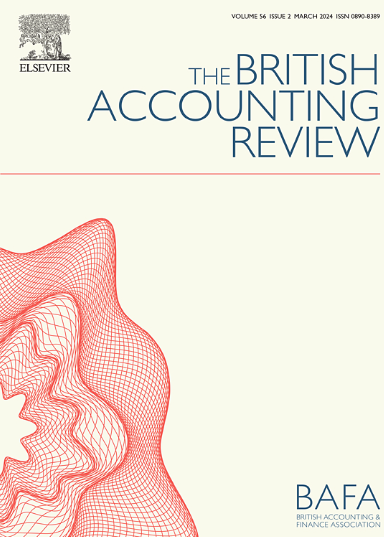The effects of extreme high temperature spells on financial performance
IF 9.4
3区 管理学
Q1 BUSINESS, FINANCE
引用次数: 0
Abstract
We examine EU and UK firms to investigate the impact of spells of extreme high temperature on three common financial performance measures: the ratio of sales-to-assets, pretax profit margin, and return on assets. Supporting our hypotheses, we find that spells of extreme high temperature have a curvilinear impact on financial performance. While extreme high temperature spells tend to degrade financial performance in regions or months with normally hotter conditions, the opposite effect is observed for extreme high temperature spells in regions or months with normally cooler conditions. Given our environmental context, where the standard temperature is about 16°C, high temperature spells with maximums that well exceed that temperature have marked financial implications. We also find that spells in locations with maximum temperatures above 23°C associate with smaller improvements in ESG scores and higher carbon emissions in the future, suggesting that managers’ actions to mitigate the risks of high temperature spells are limited at best. Our evidence of significant impacts of extreme temperature on firm performance but little action in response supports the view that managers need more guidance on how to measure the risks and opportunities of extreme weather events and the policies to manage them.
极端高温对财务业绩的影响
我们研究了欧盟和英国的公司,以调查极端高温对三个常见财务绩效指标的影响:销售与资产比率、税前利润率和资产回报率。为了支持我们的假设,我们发现极端高温对财务绩效的影响呈曲线关系。极端高温往往会在通常较热的地区或月份降低财务绩效,而在通常较冷的地区或月份的极端高温则会产生相反的效果。考虑到我们的环境背景,标准温度约为16°C,最高温度远远超过该温度的高温会带来显著的经济影响。我们还发现,在最高温度高于23°C的地区,未来ESG分数的改善较小,碳排放量较高,这表明管理者减轻高温风险的行动充其量是有限的。我们的证据表明,极端温度对企业绩效有显著影响,但几乎没有采取相应的行动,这支持了这样一种观点,即管理者需要更多的指导,以了解如何衡量极端天气事件的风险和机会,以及管理极端天气事件的政策。
本文章由计算机程序翻译,如有差异,请以英文原文为准。
求助全文
约1分钟内获得全文
求助全文
来源期刊

British Accounting Review
BUSINESS, FINANCE-
CiteScore
8.60
自引率
3.90%
发文量
39
审稿时长
76 days
期刊介绍:
The British Accounting Review*is pleased to publish original scholarly papers across the whole spectrum of accounting and finance. The journal is eclectic and pluralistic and contributions are welcomed across a wide range of research methodologies (e.g. analytical, archival, experimental, survey and qualitative case methods) and topics (e.g. financial accounting, management accounting, finance and financial management, auditing, public sector accounting, social and environmental accounting; accounting education and accounting history), evidence from UK and non-UK sources are equally acceptable.
 求助内容:
求助内容: 应助结果提醒方式:
应助结果提醒方式:


